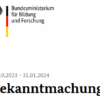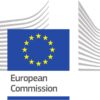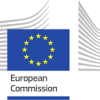
Smart grid ready buildings
ExpectedOutcome:
- Improved integration of buildings with energy carriers (e.g. electricity grid, district heating networks) and non-energy services (e.g. mobility).
- Improved buildings flexibility for grid and network management.
- Improved contribution of buildings to energy grid robustness with regard to dependencies to energy supplies.
- Increase in renewable energy production and storage at building level.
- Empowerment of end-users by having increased control over their buildings’ energy services and contracts (consumption, production, storage, flexibility).
- Enhancement of the smart readiness of buildings as rated by the smart readiness indicator.
Scope:
- Develop new or upgrade existing building-to-grid integration solutions and demonstrate them in real-life pilots. The developed solutions should provide a user-friendly interface for building users and other interested stakeholders (e.g. facility managers, portfolio managers, aggregators) that allow them increased control over the use of their buildings’ energy services and contracts (consumption, production, storage, flexibility).
- Enhance interoperability between buildings and grids for electricity and other energy carriers (e.g. district heating networks, hydrogen, etc.) relying on available standards (e.g. SAREF).
- Enhance synergies between on-site energy storage (e.g. home batteries, e-vehicles, etc.) and on-site renewable energy sources.
- Explore solutions for facilitating data exchange between buildings and other grid actors (such as ESCOs, aggregators, DSOs, etc.).
- Develop and pilot innovative and competitive energy balancing, storage and generation services in buildings, while maximising building users’ and occupants’ comfort and satisfaction.
- Demonstrate the proposed solutions in at least three pilots. Ensure that the demonstrations:
- Cover at least three countries, addressing different electricity markets.
- Involve local and regional values chains, in particular SMEs, based on participatory approaches to increase innovation acceptability.
- Lead to clear and, where relevant, quantified and measurable indicators on the results achieved.
- Demonstrate economic viability of the proposed solutions and business models for consumers and the economic actors involved.
Projects should build on the results from relevant past and on-going projects, in particular those that seek to upgrade smartness of existing buildings relying on legacy equipment (LC-SC3-B4E-3-2020).
To ensure interoperability and integration into the grid, projects should make use of operational end-to-end architectures, digital platforms and other data exchange infrastructure for the energy system being developed under ongoing Horizon 2020, Horizon Europe, like the European Science Cloud, as well as under other EU programs such as the Digital Europe Program, when addressing communication and data exchange between inverters and other components, other appliances and the electricity network.
The selected projects are expected to contribute to the BRIDGE initiative[1], actively participate to its activities and allocate up to 2% of their budgets to that end. Additional contributions to the ‘Alliance for Internet of Things Innovation’ (AIOTI) and other relevant activities (e.g. clusters of digital projects and coordinating actions) might be considered, when relevant.
Specific Topic Conditions:
Activities are expected to achieve TRL 6-8 by the end of the project – see General Annex B.
[1]https://www.h2020-bridge.eu/
General Information
- Improved integration of buildings with energy carriers (e.g. electricity grid, district heating networks) and non-energy services (e.g. mobility).
- Improved buildings flexibility for grid and network management.
- Improved contribution of buildings to energy grid robustness with regard to dependencies to energy supplies.
- Increase in renewable energy production and storage at building level.
- Empowerment of end-users by having increased control over their buildings’ energy services and contracts (consumption, production, storage, flexibility).
- Enhancement of the smart readiness of buildings as rated by the smart readiness indicator.






Smart grid ready buildings 0 reviews
Login to Write Your ReviewThere are no reviews yet.